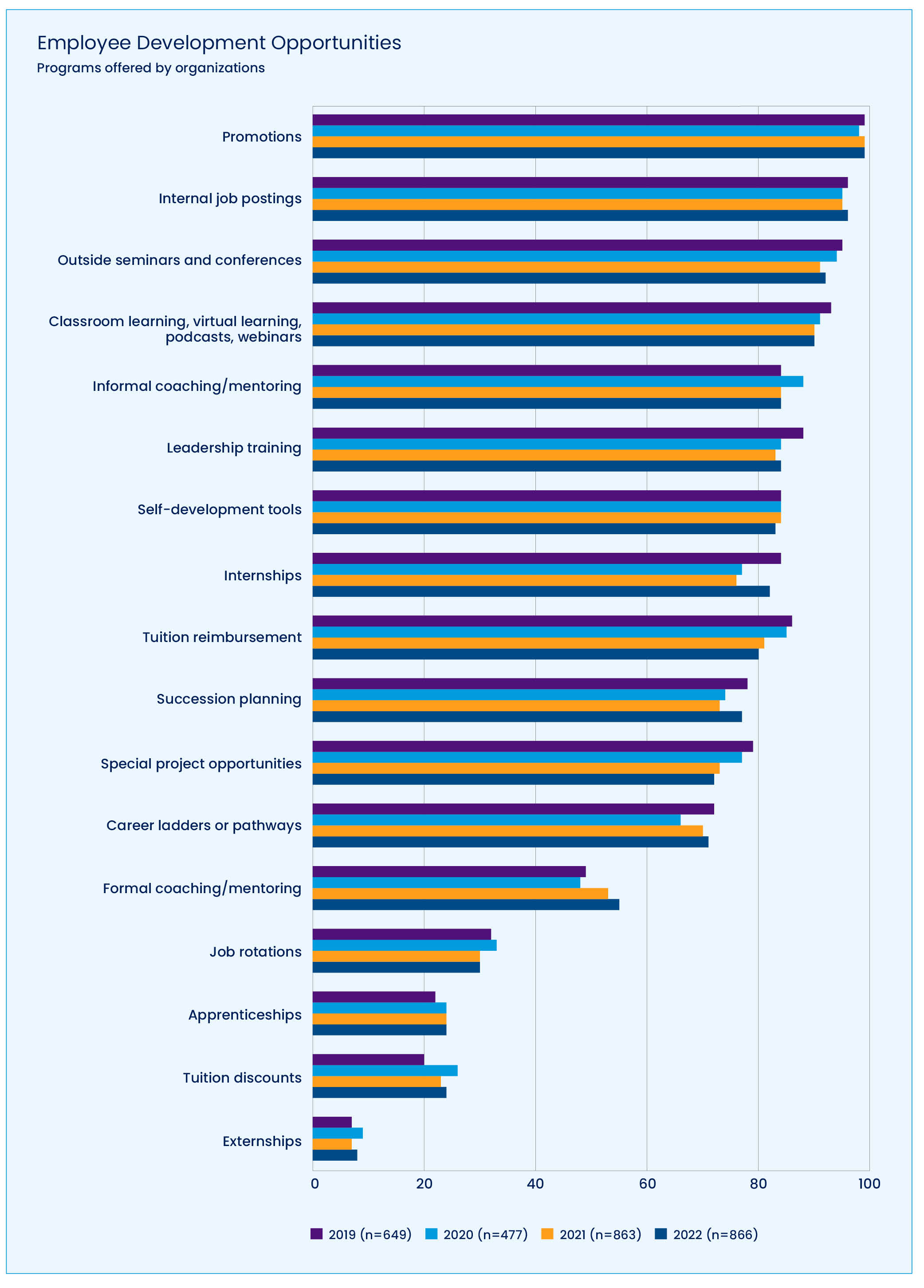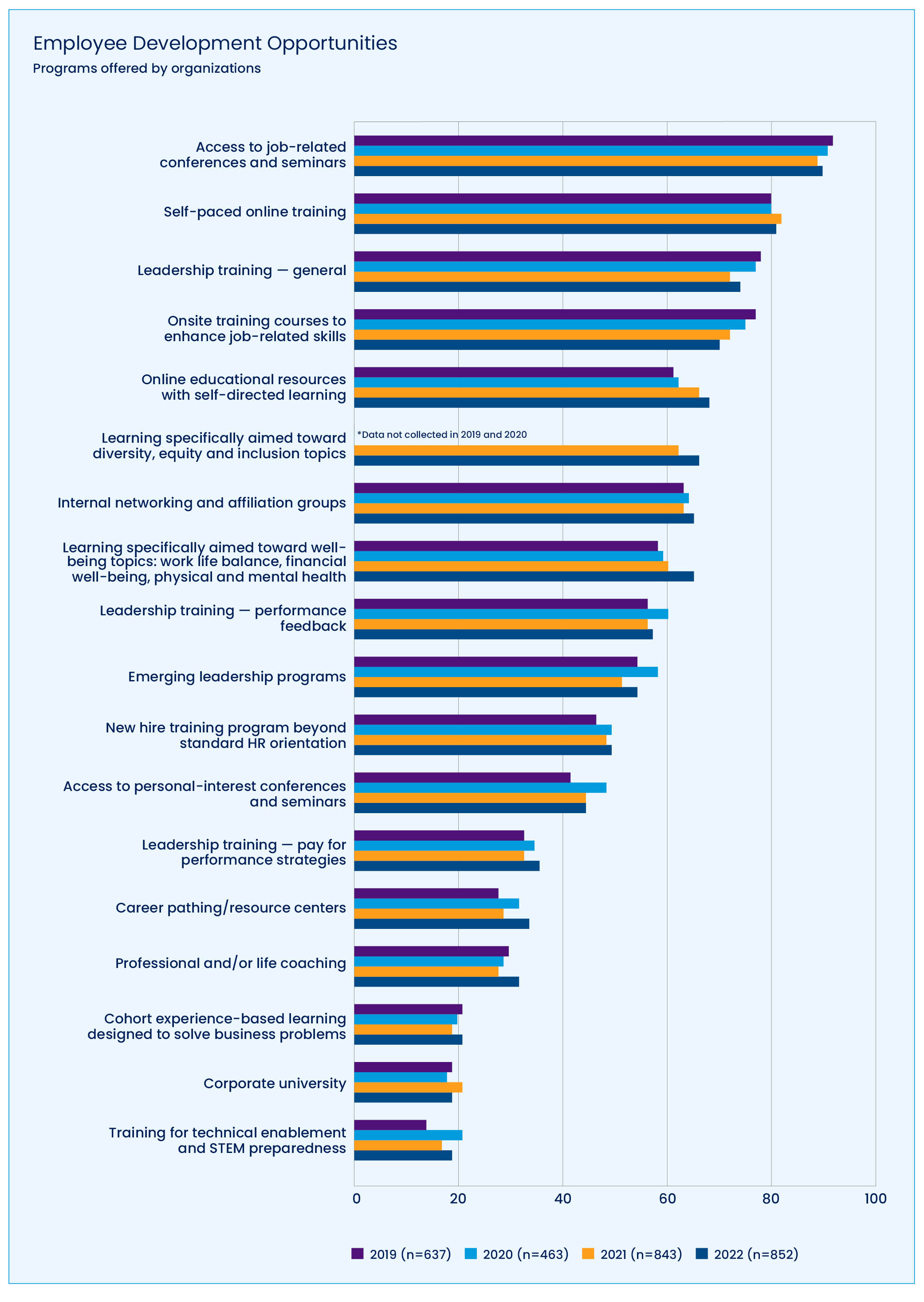The 2022 Total Rewards Inventory of Programs & Practices, WorldatWork’s recent survey of 990 total rewards professionals, found that despite ongoing effects of the global pandemic and uncertainty in the labor market, employee development opportunities are widely available in the workplace.
The study, produced with support from UFlexReward, made it clear that employers have continued to prioritize growth and training among their workforce. The data, which was collected in September 2022, found development opportunities were widespread and what is offered by employers did not change much, even during the COVID-19 pandemic.


Internship opportunities were heavily influenced by the pandemic conditions though, dropping down to just 76% of organizations in 2021 but rebounding close to the pre-pandemic average at 82% in 2022. Internships may remain below historic averages as employers continue to adapt to hybrid and remote work. The number of employers offering career pathing and resource centers has also risen steadily, from 28% in 2019 to 34% in 2022 as employers look for solutions to their current workforce needs.
“These findings demonstrate that organizations of all sizes understand the importance of development opportunities in attracting and retaining workers,” said Liz Supinski, director of research and insights at WorldatWork. “Although the largest organizations typically offer the most development opportunities, even among organizations in our study with less than 1,000 employees, a majority offered development activities ranging from learning on well-being topics to special project opportunities to training on specific job-related skills.”
On the flipside, tuition reimbursement dropped sharply in 2021 and has remained lower than pre-pandemic levels (86% in 2019 vs. 80% in 2022). This is likely directly tied to provisions in the CARES Act that allowed employers to offer student loan repayment benefits tax-free through 2025 but combined the per-employee limit for loan repayment and tuition assistance.
The survey found that the proportion of employers offering student loan repayment increased by 7% compared to the 2016-2019 average of 6%, reaching 13% of participating organizations in 2022. It is likely that some employers have chosen loan repayment as a better fit for their employees or business models than tuition assistance and adjusted their program offerings.
Employers may also be keeping an eye on the Secure Act 2.0, which was signed into law in late 2022. The Act allows employers to “match” employee student loan payments with matching payments to a retirement account starting in 2024.
Editor’s Note: Additional Content
For more information and resources related to this article see the pages below, which offer quick access to all WorldatWork content on these topics:




